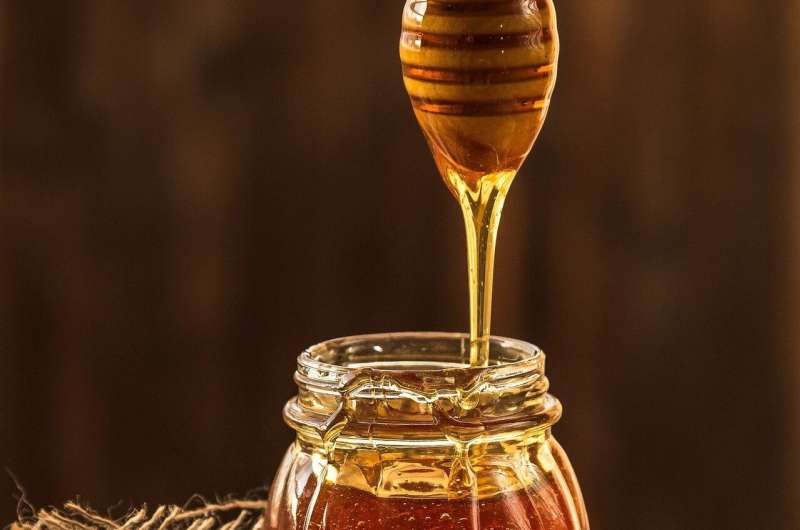January 6, 2024 report
This article has been reviewed according to Science X's editorial process and policies. Editors have highlighted the following attributes while ensuring the content's credibility:
fact-checked
trusted source
proofread
Saturday Citations: Honey yields, exercising under the influence, unexpected benefits of hearing aids

It's the futuristic year 2024! Where is the power loom that natural philosophers have been promising me? What's that? Edmund Cartwright already made one? In 1785? And it revolutionized industrial weaving? Sorry, it's been so long since the last Saturday post that I've completely lost track of the progress of science. Here are a few stories to launch into the new year.
Mortality inaudible
Researchers have observed that older adults with hearing loss who use hearing aids experience a number of ancillary benefits not obviously connected with hearing, like a markedly reduced risk of geriatric-onset dementia.
Researchers at the University of Southern California are now just straight-up reporting that people with hearing loss who use hearing aids have a 24% lower risk of overall mortality. The researchers identified 10,000 adults from the National Health and Nutrition Examination Survey who completed audiometry evaluations and answered questions about hearing aid use.
"We found that adults with hearing loss who regularly used hearing aids had a 24% lower risk of mortality than those who never wore them," said Janet Choi, MD, MPH, the study's lead researcher. "These results are exciting because they suggest that hearing aids may play a protective role in people's health and prevent early death."
Bees vexed
U.S. honey yields have been in decline since the 1990s, and researchers have been trying to understand why. Is it pesticide use? The decline in floral biodiversity? Sticky-pawed bears? Researchers at Pennsylvania State University analyzed databases operated by a number of government departments and built a corpus of data for all 50 states over a 50-year span.
They found reduced honey yield correlated with herbicide application and land use policies that don't include pollinator support. Among their findings, states with both warm and cool regions had higher honey yields, and local soil productivity was surprisingly useful in estimating honey yield.
"Our findings provide valuable insights that can be applied to improve models and design experiments to enable beekeepers to predict honey yields, growers to understand pollination services, and land managers to support plant-pollinator communities and ecosystem services," said Gabriela Quinlan, lead author of the study.
Fitness 420
In a stunning development that upends the anecdotal experiences of marijuana smokers everywhere, researchers at the University of Colorado at Boulder report that cannabis does not improve exercise performance.
The researchers recruited 42 runners. One group exercised under the influence of THC; another took non-psychotropic CBD. All participants reported greater enjoyment, higher motivation, and a more intense "runner's high," but participants in the THC group reported that the same intensity of running was significantly more difficult during the cannabis run than the sober run—possibly because THC increases heart rate.
"It is pretty clear from our research that cannabis is not a performance-enhancing drug," said Angela Bryan, a professor of psychology and neuroscience.
Jurassic hobbits
Researchers studying fossils presumed to be juvenile tyrannosaurs report that the remains actually constitute adults of a smaller species, now called Nanotyrannus lancensis.
Pee evaluated
Researchers at the University of Maryland and the National Institutes of Health report that pee is yellow because of a previously unknown microbial enzyme called bilirubin reductase.
Chickens contextual
A University of Queensland-led study found that humans can determine the emotional valence of chickens from the sound of their clucks.
© 2024 Science X Network




















